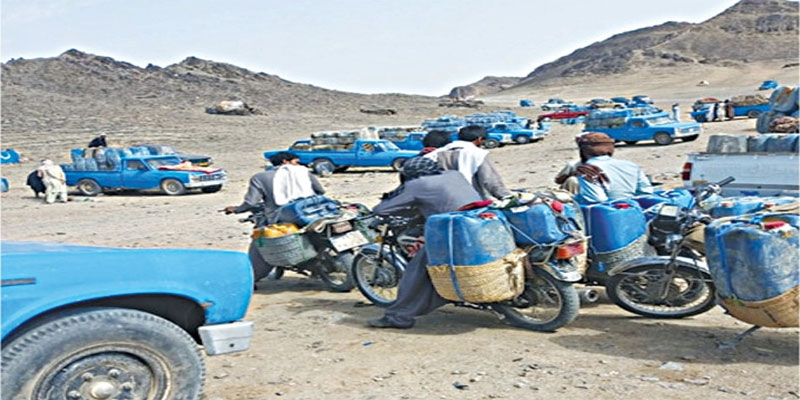A new report says that Pakistan is missing out on Rs. 227 billion in tax money each year because about 10 million liters of petrol and diesel from Iran are being brought into Pakistan every day. This is happening through both land and sea routes.
The report, made by intelligence agencies, found that some people from law enforcement agencies are involved. There are also 533 illegal petrol stations across the country, and 105 smugglers bringing in Iranian oil using hidden routes.

Most of the smuggled petrol and diesel come through Makran and Rakhshan divisions. Then, they’re sold at unauthorized roadside shops. Despite efforts to stop the smuggling, it’s still happening. Since the General Elections on February 8, around 8.9 million liters of smuggled fuel are coming in each day.
The report stated that about 2.8 billion liters of Iranian oil are smuggled annually, causing a yearly loss of at least Rs227 billion to the national treasury. The smuggled petroleum products are transported through lesser-known routes in the Makran and Rakhshan divisions and are mostly sold at unauthorized roadside petrol stations.
Out of the 533 such petrol stations, the majority—348 of them—are found in Punjab, including major cities like Lahore, Faisalabad, Jhang, and Attock, indicating the seriousness of the problem.
Read Also:Saudi Arabia Launches Nusuk Card for Legal Pilgrims Ahead of Hajj
The report shows that there is a complicated system helping with smuggling, including payments in different currencies. Sadly, around 2.2-2.4 million people in Balochistan depend on this illegal trade to make a living, especially in places where there aren’t many job opportunities.
In April 2024, the Oil Companies Advisory Council (OCAC) wrote a letter to the Special Investment Facilitation Council (SIFC) complaining about the smuggled products. OCAC said that oil marketing companies (OMCs) like PSO and Shell are seeing less people buying their products, which is causing them to lose $35.6 million each month.
This is also reducing the amount of tax money the government gets. The group asked for quick action to protect the country’s energy security and its economy.